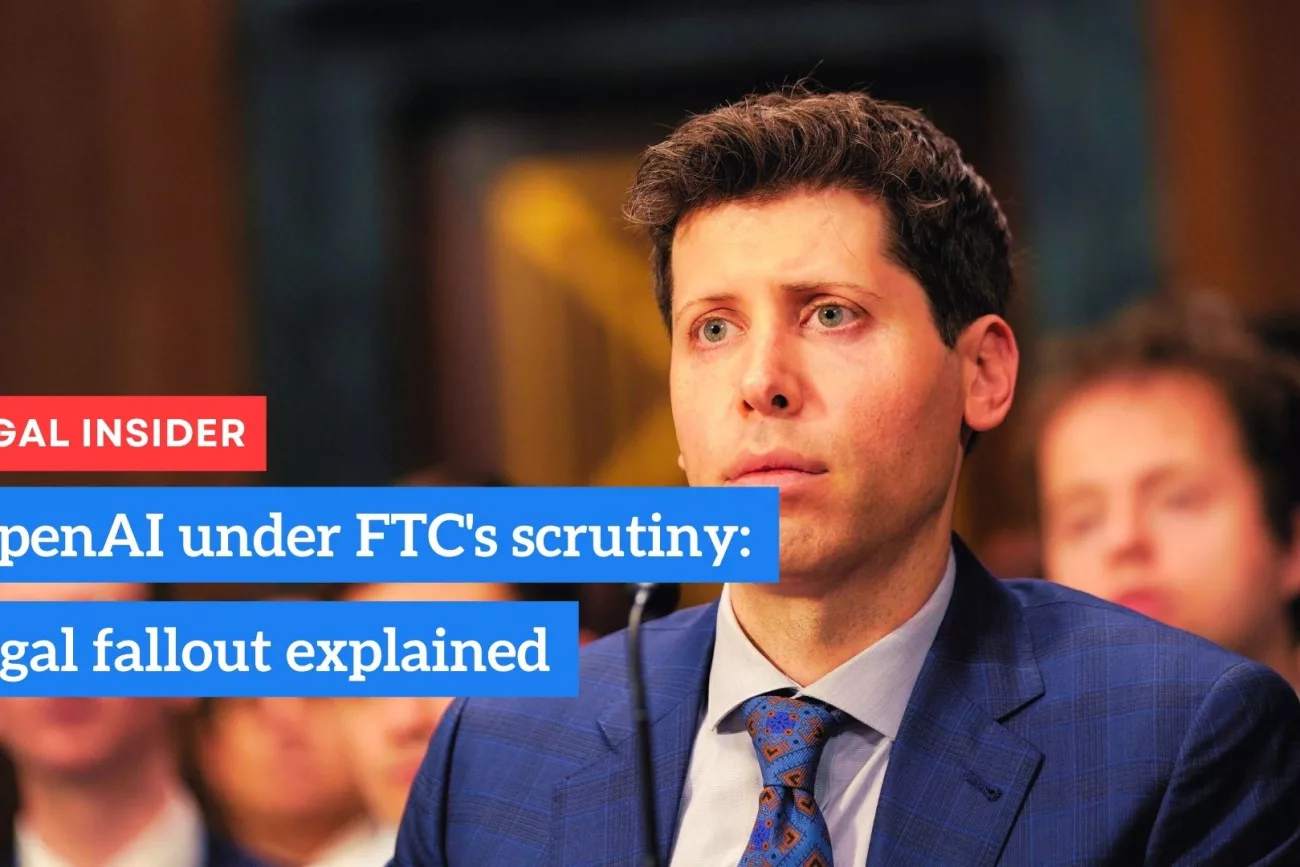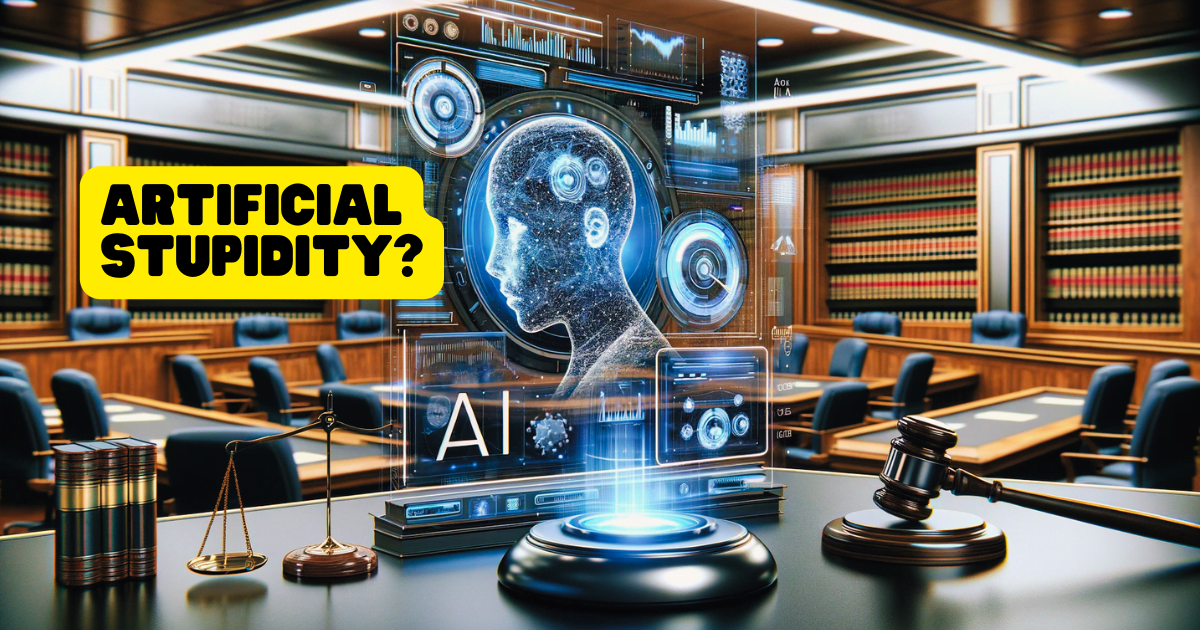
Key Points:
- The FTC’s investigation into OpenAI, makers of ChatGPT, is exploring potential violations of consumer protection laws due to data leaks and inaccuracies.
- The investigation represents a significant regulatory challenge for OpenAI, potentially influencing the future of AI laws in the US.
- Controversy around AI and its implications on privacy and reputational harm is rising, as evidenced by the OpenAI probe, igniting debate among legal professionals.
- This case could catalyze new AI regulations in the US, an area where Europe has been pioneering, providing valuable precedents.
OpenAI Swept Up In FTC Storm: A Revealing Probe Into Data Privacy and AI Accuracy 😱
Will this mark the most significant legal confrontation in the AI world to date? Or could it reshape the rules of AI regulation for good?* 🤔
In what’s shaping up as a watershed moment in the US tech industry, the Federal Trade Commission (FTC) has thrust OpenAI, the brains behind the widely-acclaimed ChatGPT, into the scorching limelight of a wide-ranging investigation. 🧐 The core question: Did OpenAI’s alleged mishandling of data and potential inaccuracies in ChatGPT’s responses cross the Rubicon of consumer protection laws? 🏛️ This could represent a defining moment in how AI businesses are governed in America.
The FTC Subpoena: A Game-Changer for AI Regulation? 🚨
The FTC’s subpoena, a lengthy 20-page catalog of demands for records around OpenAI’s risk management strategies, is a loud wake-up call for the AI industry. OpenAI, which has been on a worldwide diplomatic mission to influence future AI policy, now faces its most severe regulatory trial in the US. 🔎
ChatGPT has become a force to be reckoned with in the AI realm, sparking an arms race among tech giants in Silicon Valley. Sam Altman, OpenAI’s CEO, is a recognized figure in the debate around AI regulation, maintaining open lines of communication with the highest echelons of US power. 🏛️
But has the FTC thrown a spanner into the works of OpenAI’s grand vision? 😱
FTC’s Growing Grip on AI: Warning Signs for Silicon Valley? 👮
Recent developments in Washington suggest that the FTC is poised to tighten its hold on AI regulation. OpenAI’s subpoena could be seen as the first significant play in enforcing warnings around consumer protection laws applying to AI. Senate Majority Leader Charles E. Schumer (D-N.Y.) also added fuel to the fire, hinting that fresh AI legislation might be around the corner. 📜
What could the FTC’s growing grip on AI regulation mean for the tech industry? 🤔
The FTC, which has previously made headlines by imposing substantial fines on the likes of Meta, Amazon, and Twitter, could hold the power to issue hefty penalties or place OpenAI under a consent decree, fundamentally dictating how the company handles data. The FTC’s scrutiny of OpenAI might suggest a trend of cracking down on data security practices in the AI industry. 🔒
Could the FTC be the new sheriff in town, ready to keep Silicon Valley in check? 😮
Reputational Risks and AI: A Legal Minefield? 💥
According to FTC’s documents, they are requesting an exhaustive report of all complaints alleging that OpenAI’s products made “false, misleading, disparaging, or harmful” remarks about individuals. The central question is whether OpenAI engaged in unfair practices, causing “reputational harm” to consumers.
The FTC also demanded records relating to a security incident OpenAI disclosed in March when a system glitch exposed some users to payment-related information and others’ chat history. The FTC is probing if these data security practices flout consumer protection laws. 🕵️♀️
Can OpenAI steer the ship clear of these legal icebergs? Or will these accusations capsize the company’s reputation? 😨
The AI Warzone: A Clash of Perspectives 👊
The FTC’s moves have not gone without resistance. During an animated House Judiciary Committee hearing, Republican lawmakers criticized FTC Chair Lina Khan’s approach, accusing her of overreaching her powers. They questioned the legal authority backing the FTC’s demands, especially as libel and defamation are primarily matters of state law. 🧐
Khan, however, defended the FTC’s stance, arguing that misuse of private data in AI training could fall under the umbrella of fraud or deception. She maintained that the FTC’s focus is on the potential for “substantial injury” to consumers. 🎯
From Silver Screen to FTC Warnings: Regulating AI 👽
The FTC has, on numerous occasions, hinted that a crackdown on AI is imminent. Samuel Levine, the agency’s Bureau of Consumer Protection Director, emphasized in a speech at Harvard Law School that while the FTC encourages innovation, it won’t tolerate recklessness. 🚫
In a fascinating mix of pop culture and law, the FTC has even invoked popular science fiction movies in blog posts to caution the industry against breaking the law. 😲
In The Eye of The Storm: OpenAI Under Investigation 🌀
The FTC’s demands of OpenAI are not for the faint-hearted. The agency is asking for any research, testing, or surveys assessing consumers’ understanding of “the accuracy or reliability of outputs” generated by its AI tools. Furthermore, the FTC seeks records related to instances when OpenAI’s products could generate disparaging statements.
One glaring case under the microscope is that of Mark Walters, a radio talk show host in Georgia who sued OpenAI for defamation, alleging ChatGPT fabricated legal claims against him. 💼
OpenAI’s ChatGPT has also made controversial claims about a lawyer’s inappropriate conduct during a class trip, citing a non-existent Washington Post article. Could these high-profile reports of fabricated information spell trouble for OpenAI’s reputation? 🤨
OpenAI: A Possible Overhaul in Product Release and Advertising? 🔄
The FTC’s broad-ranging request calls for a deep dive into OpenAI’s product release and advertising practices. The agency wants insights into the policies and procedures OpenAI adopts before launching new products, particularly those held back due to safety risks.
This interrogation extends to the description of data used in training OpenAI’s products and how the company adjusts its models to combat their propensity to “hallucinate” – making up answers when they don’t know the answer to a question. Could this pave the way for a sea change in OpenAI’s operational strategy? 🌊
Closing Thoughts: An AI Regulation Showdown on the Horizon? 🌅
As the United States scrambles to catch up with other governments on AI legislation and privacy concerns, this FTC probe into OpenAI could be a turning point. With Europe taking substantial strides towards AI regulation, it’s clear that the AI industry is entering a new era of accountability and legal scrutiny. 🌐
In the face of this impending storm, what does the future hold for OpenAI and AI regulation in the US? Only time will tell.
For more thought-provoking content on the evolving landscape of AI and legal implications, sign up for our newsletter. Join the conversation – let’s shape the future of AI together! 🚀
References:
FTC’s approach to AI regulation
Share this post
Frequently Asked Questions (FAQs)
Q: What initiated the FTC's investigation into OpenAI?
A: The FTC began investigating OpenAI following concerns about data security incidents and the potential harm caused by inaccuracies in the ChatGPT tool, possibly infringing on consumer protection laws.
Q: What could be the implications of this investigation for OpenAI?
A: If the FTC finds OpenAI in violation of consumer protection laws, penalties could range from heavy fines to a consent decree altering the way OpenAI handles data.
Q: How has OpenAI's CEO responded to the investigation?
A: OpenAI’s CEO, Sam Altman, has assured cooperation with the FTC, maintaining that the company prioritizes safety and consumer interests, and is confident in its adherence to the law.
Q: What repercussions could this investigation have on AI regulation?
A: The investigation into OpenAI may serve as a key test case for the FTC’s stance on AI and consumer protection laws, potentially shaping the future of AI legislation.
Q: How does this investigation affect the broader tech industry?
A: This investigation could set a precedent for how AI tools are regulated, having a profound impact on tech giants, SMEs, and startups leveraging AI technologies.














